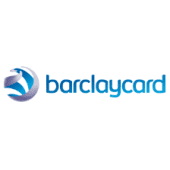
The changing face of business payments
COVID-19 has put unimaginable pressure on small and medium sized businesses across the UK. For these businesses, now more than ever, cash flow is everything. Expenses play a major part in a business’ cash flow, and if handled correctly, can leave companies with a substantial pot of money at the end of each financial year.
It is therefore crucial that small businesses have the right processes set up to deal with expenses. It could even mean the difference between keeping the doors open and being forced to close.
Traditionally, companies’ expenses processes have been manual and time-intensive. Employees have been expected to fill out expenses by hand and submit them in person. This also involves them making payments from their own cards before being reimbursed. The process creates unnecessary friction between an employer and an employee, as people are expected be out-of-pocket for periods of time.
Whilst many SMEs have progressed to offering company cards for their employees, the system still relies on a manual and time-consuming processes for filing and paying back the expenses. The pandemic has rendered expenses processed on paper unfeasible and, as a result, many small businesses have been forced to rethink and streamline their approach to employee spending.
More companies are therefore moving towards digital management systems and there has been a surge in demand for online solutions such as virtual cards, and controls that help to manage day-to-day expenses in a more efficient way.
The uptake in these sorts of tools is important, not only because it saves time and ensures that employees are not out of pocket, but it also gives control back to the employer. Small businesses can implement systems that allow them to approve spending requests before purchases are made.
Whilst many larger firms are benefiting from the changing face of business payments, others - particularly smaller companies - have a bit of a way to go. To help, Barclaycard has created three top tips that companies should bear in mind when looking to streamline the expense process for employees.
1) Go digital
There has been an uptake in the use of digital wallets, particularly as a result of COVID-19, as people are keen to use touchless payment methods such as ApplePay or Google Pay, and merchants are increasingly taking payment through apps.
By adopting virtual cards, companies can ensure a new way of being agile and allowing employees to make purchases, whilst at the same time giving the company control over what payments are being made. If companies have a centrally-managed virtual card system set up, then employees don’t need to submit their expenses afterwards as they are already approved before the payment is made.
2) Use third parties
There are various solutions available, which are designed to work with both physical corporate cards and virtual cards. There is still a transition happening from physical to virtual payment solutions within businesses, with many companies still using elements of both.
Those that are still using physical corporate cards need to use a third party to ensure that the cards are integrated with digital expense management systems, even if virtual cards have not yet been implemented.
It’s also important that companies evaluate the services provided and implement systems which can be customised to reflect their existing expense policy and can be integrated with existing software. By laying the groundwork now, they will benefit later down the line.
3) Be flexible and adapt to new trends
There’s been a shift in how people work, with the working from home culture set to continue for the foreseeable future. Whilst business trips and associated travel expenses have decreased during COVID-19, expenses for items such as stationery, home-office equipment and virtual training have increased.
Furthermore, with a full-time return to the office unlikely for many businesses - even in the longer-term - employees may increasingly move further away and then claim back any commuting expenses for they do incur.
This is a turbulent time for the ‘workplace’ as we know it and companies need to adapt to behavioural changes and reflect them in their payment systems.
As long as employees exist, expenses will exist. But, as the world becomes more digital, so too must payment processes. Embracing new technologies and digital systems provides small businesses with the opportunity to operate fully, whether in the office or at home, and sets them in good stead, whatever the future holds.


